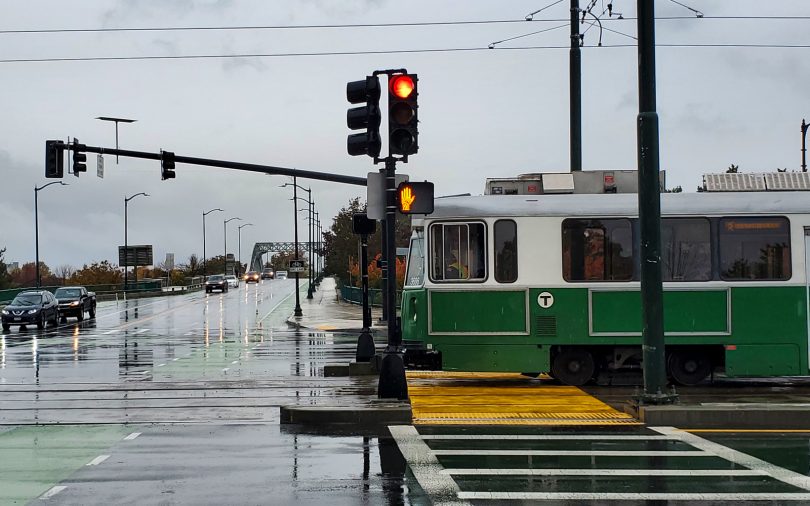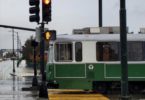By Claudia Chiappa
BU News Service
BOSTON – Back in September, the Massachusetts Bay Transportation Authority announced that it plans on reducing and eliminating some of its services in response to a budget deficit of over $300 million. To combat the deficit, caused by low ridership and lost fare revenue in the face of COVID-19, the MBTA recently proposed a three-pronged plan of cost control, capital reallocation, and service planning.
The Fiscal and Management Control Board plans to identify essential services based on an analysis of locations with high ridership – current and potential – and which serve critical populations. These essential services will be prioritized, while services considered non-essential will be cut or suffer from reductions. Possible trade-offs of the plan include eliminating some routes with low ridership and cutting services on the weekends and at night.
MBTA General Manager Steve Poftak said in a pre-recorded statement on Oct. 19 that the agency continues to value safety and is looking at “any possible option.”
A significant decrease in ridership is the main factor that contributed to the deficit. According to a presentation by the general manager, bus ridership is at 40% of normal daily ridership, subway ridership is at 24%, and commuter rail is at 14%. The MBTA has received $830 million in federal funding but is petitioning to receive additional financial support.
Over thirty organizations released a joint statement calling the MBTA to hold off on any permanent decisions until the end of the year and to continue committing to sustainable, affordable and green transportation.
The Alliance for Business Leadership is one of the organizations that signed the statement. President Jennifer Benson said the MTBA should consider the impacts that cuts could have on low-income communities and communities of color.
“These communities are often left behind and excluded from service improvements – or end up shouldering the consequences of these improvements – including air pollution and development decisions that harm their neighborhoods,” Benson said. “Every public policy decision is a chance to center and prioritize these communities and make up for the injustices they’ve experienced.”
Boston Mayor Marty Walsh also expressed concern about the MBTA’s plan, saying that safe and clean public transportation is “critical to economic recovery.” Essential workers and vulnerable communities are already struggling, Walsh said, and increasing fares or cutting services would only worsen their condition and lead to overcrowding.
“We must avoid fare increases and maintain sufficient service levels prioritizing our most transit-dependent communities,” Walsh said in a pre-recorded statement.
The FMCB plans to examine service options throughout October and present them at the beginning of November, with voting planned for Dec.7. Any service changes would go into effect in 2021. In the meantime, the MBTA started a series of public engagement efforts, including eleven virtual public hearings, the creation of a team of Community Liaisons tasked to gather feedback from riders and an online comment form.




